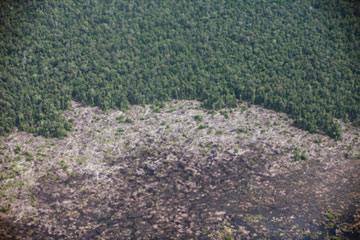|
|
The Senate Foreign Relations Committee last week unanimously passed the Tropical Forest and Coral Conservation Reauthorization Act of 2009 (S. 345) introduced by Senate Foreign Relations Committee Chairman John Kerry (D-MA) and Ranking Member Senator Dick Lugar (R-IN). The bill would provide up to $115 million in debt relief to tropical countries in exchange for commitments to conserve forests and coral reefs.
“Deforestation is a significant driver of global climate change, and we must pursue a variety of efforts to reduce emissions from deforestation in tropical and sub-tropical nations. This innovative program has provided critical support to developing countries in conserving their forest landscapes while reducing their debt burdens, and I am thrilled to join Senator Lugar in introducing this important legislation,” said Senator Kerry.
“This bill reauthorizes a proven program which enjoys the ardent support of the Treasury Department and State Department for the third time since 1998. It will help developing countries protect tropical forests and endangered marine habitats around the world while reducing their foreign debt levels. This bill will also serve as an important diplomatic tool to provide for our national security,” said Senator Lugar.
 Forest clearing for the establishment of oil palm plantations on carbon dense peatlands in Indonesian Borneo (Central Kalimantan) in May 2009. |
Under the Tropical Forest Conservation Act (TFCA), the program currently in place, the U.S. State Department has reached agreements generating $188 million in long-term commitments for tropical forest conservation in Bangladesh, El Salvador, Belize, Peru, the Philippines, Panama, Guatemala, Colombia, Paraguay, Botswana, Costa Rica, and Jamaica. TFCA languished under the Bush Administration, which reduced funding while adding a coral reef conservation mandate, further diluting funds available for tropical forests.
The Tropical Forest and Coral Reef Conservation Act of 2009 authorizes appropriations for debt reduction for eligible countries at $25,000,000 for fiscal 2009; $30,000,000 in 2010; $30,000,000 in 2011; and $30,000,000 in 2012. The figures represent a reduction from previous levels—in some years Congress has authorized up to $100 million annually for forest conservation.
The Tropical Forest Conservation Act (TFCA) was enacted in 1998 to offer eligible developing countries forego paying back debt owed to the U.S. in exchange for supporting local tropical forest conservation activities. A TFCA agreement can be structured as debt reduction, debt buyback, or debt-for-nature swap, according to the State Department.
According to U.N. data, tropical deforestation rates increased 8.5 percent from 2000-2005 when compared with the 1990s, while loss of primary forests expanded by almost 24 percent over the same period. Overall, the U.N. estimates that 10.40 million hectares of tropical forest were permanently destroyed each year in the period from 2000 to 2005, an increase since the 1990-2000 period, when around 10.16 million hectares of forest were lost. Among primary forests, annual deforestation rose to 6.26 million hectares from 5.41 million hectares in the same period. On a broader scale, U.N. data shows that primary forests are being replaced by less biodiverse plantations and secondary forests. Industrial logging, conversion for agriculture (commercial and subsistence), and forest fires — often purposely set by people — are responsible for the bulk of global deforestation today.
Tropical forests are the world’s most biodiverse ecosystems. Scientists are concerned that tropical deforestation is contributing to global warming and causing a mass extinction event not seen since the age of dinosaurs.